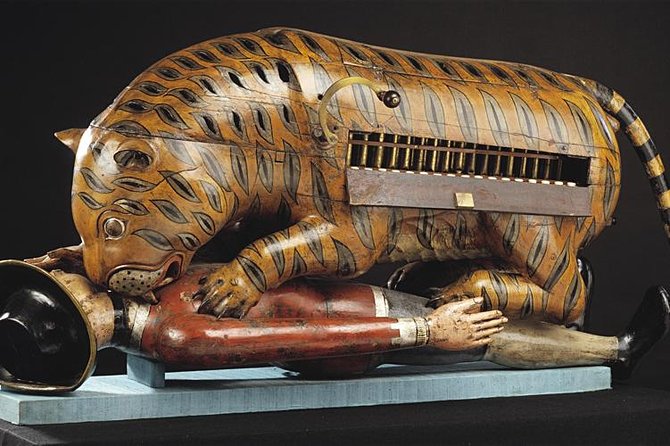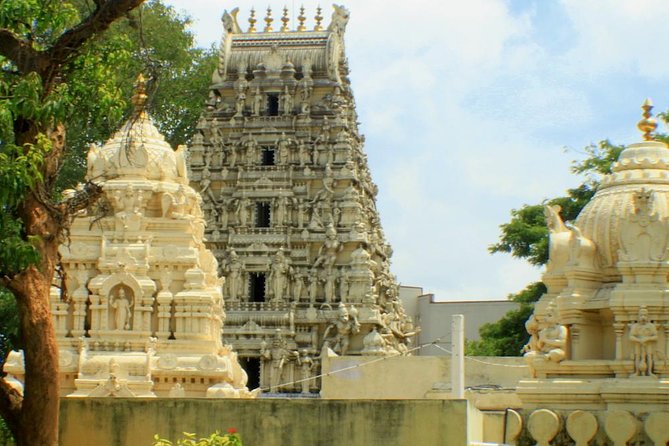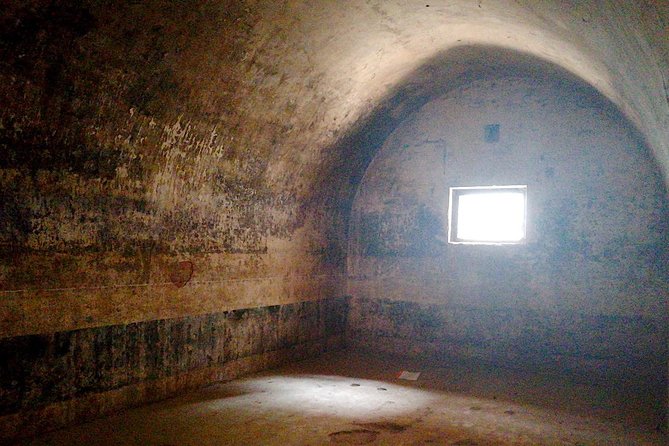The story of Tipu Sultan unfolds against the backdrop of 18th-century India, where his fierce resistance to British colonial expansion marked him as a pivotal figure. Rising to power after his father’s death, he demonstrated remarkable military skill and strategic innovation during the Anglo-Mysore Wars. But his legacy extends beyond the battlefield; he championed education, trade, and technological advancements that transformed his kingdom. As one explores Tipu’s life, the complexities of his character and the implications of his actions on India’s future become increasingly intriguing. What drove his relentless quest for sovereignty?
Key Points

- Tipu Sultan was born in 1751 and became a prominent leader in the Mysore kingdom, succeeding his father Hyder Ali after his death in 1782.
- He fiercely resisted British colonial expansion during the Anglo-Mysore Wars, showcasing innovative military tactics and strategies.
- Tipu Sultan implemented significant reforms, including advanced weaponry, a new revenue system, and promotion of education and industrialization.
- His legacy symbolizes resistance against colonialism, inspiring future generations and influencing modern governance and nationalism in India.
- Tipu Sultan is celebrated through various cultural expressions, festivals, and commemorations, highlighting his heroism and contributions to Indian history.
Early Life of Tipu Sultan

Tipu Sultan, born in 1751 in Devanahalli near Bangalore, was the son of Sultan Hyder Ali and quickly became known for his fierce resistance against British colonial expansion in India.
Growing up in a politically charged environment, Tipu was exposed to military strategies and governance from an early age. His father’s ambition to expand the Mysore kingdom greatly influenced him.
Educated in various disciplines, including science and literature, Tipu developed a keen intellect that complemented his warrior spirit. He learned to value innovation, often using advanced weaponry in battles.
This early foundation shaped his future as a formidable leader, setting the stage for his legendary role in defending his kingdom and culture against colonial forces.
You can also read our reviews of more tours and experiences in Bangalore.
Rise to Power

After his father’s death in 1782, the young ruler swiftly took charge of the Mysore kingdom, determined to continue the fight against British encroachment in India.
Tipu Sultan, only 25 at the time, quickly established himself as a fierce leader. He inherited a strong military legacy and harnessed innovative tactics to strengthen his forces.
Tipu embraced modern weaponry and implemented reforms in administration, agriculture, and trade, aiming to enhance the economic stability of Mysore. His charisma and strategic acumen attracted loyal supporters, enabling him to consolidate power effectively.
As he prepared to face the British threat, Tipu’s ambition and vision positioned him as a formidable opponent, setting the stage for the conflicts that would define his reign.
The Anglo-Mysore Wars

The Anglo-Mysore Wars, a series of four conflicts between the Kingdom of Mysore and the British East India Company, marked a pivotal struggle for control in southern India during the late 18th century.
The first war erupted in 1767, fueled by territorial disputes and alliances.
Tipu Sultan, who took the throne after his father Hyder Ali’s death, became a formidable opponent during the second and third wars (1780-1784 and 1790-1792). His innovative tactics and fierce resistance showcased his determination to defend Mysore.
The fourth war (1798-1799) ultimately led to Tipu’s demise and the British consolidation of power in the region.
These conflicts not only reshaped the political landscape but also significantly impacted the socio-economic conditions in southern India.
Innovations and Reforms
During his reign, Sultan innovated various administrative and military reforms that showcased his vision for a modernized Mysore. He introduced a new revenue system that increased agricultural productivity and improved tax collection, benefiting farmers and boosting the economy.
In the military realm, he emphasized the use of advanced weaponry, including rockets that revolutionized warfare. Sultan also established a robust navy, recognizing the importance of maritime strength.
On top of that, he promoted industrialization by encouraging the production of silk and other textiles, which enhanced trade. His focus on education led to the hotel of several institutions, fostering a literate society.
Through these innovations and reforms, Tipu Sultan aimed to transform Mysore into a formidable and self-sufficient kingdom, setting a precedent for future leaders.
Legacy and Impact
Tipu Sultan’s legacy resonates through history, as his fierce resistance against colonial forces and visionary reforms continue to inspire discussions on sovereignty and modernization in India.
His relentless fight against the British East India Company not only showcased his military prowess but also ignited a spirit of nationalism among subsequent generations.
Sultan’s advancements in technology and administration laid the groundwork for modern governance in the region.
On top of that, his promotion of trade and agriculture emphasized the importance of self-sufficiency, which remains relevant today.
Through stories, monuments, and scholarly discussions, Tipu Sultan’s impact endures, serving as a powerful symbol of bravery and innovation.
His life encourages current and future leaders to embrace resilience in the face of adversity.
- Royal Mysore Tour From Bangalore in Private Car With Guide and Lunch
- See Bangalore Through My Eyes (Cultural / Historical / Walking Tour)
- Half-Day Private British Heritage Tour With Lunch
- Bengaluru Pete City Market Half-Day Walking Tour
- Mysuru Day Tour- a Cultural and Offbeat Experience From Bengaluru
- Bangalore to Taj Mahal and Agra Same Day Tour With Flights
Cultural Significance

Resonating through the cultural landscape of India, Tipu Sultan’s life and legacy have inspired countless artistic expressions, literature, and public discourse that reflect his enduring significance in the nation’s history.
His impact can be seen in various ways:
-
Literature: Numerous books and plays depict his valor and resistance against colonial forces.
-
Art: Artists often portray him as a symbol of freedom and bravery in their works.
-
Film and Theatre: His story frequently appears in films and stage performances, captivating audiences.
-
Folklore: Local tales and legends celebrate his heroism, enriching cultural narratives.
Through these avenues, Tipu Sultan remains a vibrant figure, embodying the spirit of resistance and national pride, continually inspiring new generations.
Modern Commemorations

How do modern commemorations of Tipu Sultan reflect his enduring legacy in contemporary society?
Across India, various events and initiatives celebrate his life and contributions, showcasing his significance in the fight against colonialism. Statues, parks, and educational institutions often bear his name, serving as reminders of his resilience and leadership.
In Karnataka, annual festivals honor his memory, attracting thousands who celebrate his valor and vision. Museums dedicated to Tipu Sultan display artifacts, educating visitors about his revolutionary tactics and governance.
Plus, literature and films continue to explore his story, inspiring new generations to appreciate his impact. These modern commemorations foster a deeper understanding of his role in history, ensuring Tipu Sultan’s legacy remains alive and relevant today.
Frequently Asked Questions
What Were Tipu Sultan’s Main Military Strategies?
Tipu Sultan’s main military strategies involved guerrilla warfare, innovative use of artillery, and leveraging local knowledge. He also formed alliances with other powers, adapting tactics to counter British advances effectively and enhance his kingdom’s defenses.
How Did Tipu Sultan’s Reign Affect Local Economies?
Tipu Sultan’s reign boosted local economies through improved agricultural practices, trade expansion, and the promotion of industries. His policies encouraged entrepreneurship, leading to increased prosperity and a more vibrant marketplace for local communities.
What Were Tipu Sultan’s Personal Beliefs and Values?
Tipu Sultan valued independence, innovation, and religious tolerance. He believed in self-reliance for his kingdom, advocating for technological advancements and fostering a spirit of resilience among his people against colonial powers encroaching on their sovereignty.
Did Tipu Sultan Have Any Notable Enemies?
Tipu Sultan faced notable enemies, including the British East India Company and Maratha forces. Their conflicts significantly impacted his reign, as he fiercely defended his kingdom while striving to expand his territory and independence.
How Is Tipu Sultan Remembered in Contemporary Indian Culture?
In contemporary Indian culture, Tipu Sultan’s remembered as a symbol of resistance against colonialism. His legacy inspires many, and he’s often celebrated for his bravery, innovative military strategies, and commitment to the welfare of his people.
Recap
Tipu Sultan’s legacy continues to resonate, reminding people of the courage and determination needed to resist oppression.
His innovative spirit and commitment to his kingdom not only shaped the course of Indian history but also inspired future generations to stand up for their rights.
As a symbol of bravery and nationalism, Tipu’s story endures, celebrated in various forms today.
His life serves as a powerful reminder of the enduring struggle for freedom and justice in the face of colonialism.
More Tour Reviews in Bangalore
- Discover Bangalores Secret Urban Farming Oasis
- Explore UNESCO Sites Belur & Halebidu + Shravanabelagola
- Bangalore Through the Ages – Full-Day Tour With Lunch
- Touristic Highlights of Bangalore (Guided Sightseeing Tour With Food Tasting)
- Lalbagh+Bull Temple+Tipu Palace+Market+Lunch=Bangalore City Tour
- Lalbagh Botanical Garden Early Morning Walk + Breakfast at MTR
Not for you? Here's more nearby things to do in Bangalore we have reviewed
- Discover Bangalores Secret Urban Farming Oasis
- Explore UNESCO Sites Belur & Halebidu + Shravanabelagola
- Bangalore Through the Ages – Full-Day Tour With Lunch
- 25 Best Guided Tours In Bangalore
- 25 Best Tours In Bangalore
- 3 Best National Park Tours In Bangalore
- 8 Best Shopping Tours In Bangalore
- Touristic Highlights of Bangalore (Guided Sightseeing Tour With Food Tasting)
- Lalbagh+Bull Temple+Tipu Palace+Market+Lunch=Bangalore City Tour
- Lalbagh Botanical Garden Early Morning Walk + Breakfast at MTR
- Bengaluru Food Tasting in VV Puram Chat Street.
- World Heritage Hampi & Chitradurga in 2 Days From Bangalore+Lunch
